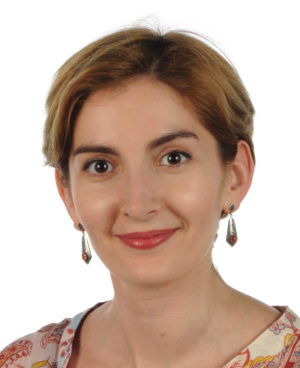We bring you the opportunity to get to know another invited speaker to the upcoming 14th NYRA Meeting in Norwich (September 19th-21st) through this ‘tête-à-tête’.
Dr. Sandra Laurentino studied Biochemistry and did her PhD in Biomedicine at the University of Beira Interior in her native Portugal. Right afterwards she move to Germany to join the Centre of Reproductive Medicine and Andrology (CeRA) as a post-doc, focusing on sperm epigenetics in male infertility. She is now a group leader at the CeRA, studying testicular gene regulation throughout life, with a special interest on male reproductive ageing.
When and why did you decide to work in the field of reproductive biology?
During my biochemistry studies I developed a special interest in gene expression and hormonal regulation. When the time came to do my undergraduate thesis I heard of a research project focusing on spermatogenesis and the expression of genes involved in hormonal regulation and I thought that sounded perfect! The rest is history, I guess. I quickly became fascinated with spermatogenesis and still am. Apart from that, I grew up hearing that I was a miracle baby as my parents, specifically my mother, had fertility issues so reproductive biology was something I was already aware of. It is very gratifying to think that my research can ultimately help couples with the same problems.
Can you name the greatest success(es) in your career?
I’m always hoping it is going to be my next work! However there are some “wins” that I am very proud of. One of them might sound strange, but it was when when I won a PhD Student Writing Prize from EMBL with an epic poem. It was apparently the first time they gave an award to a poetry entry and I’m not sure it ever happened again. Scientifically it was when I published a paper with ageing-related changes in healthy men, as it was an unexpectedly long and sometimes painful process and the study involved clinical and basic scientists, in addition to a large number of volunteers. And, of course, I can’t forget my grants, of which I am incredibly proud!
Can you name a moment of failure (and which lesson did you learn with it)?
I learned along the way not to view grant and paper rejections as failure, as these can be improved upon. However, during my PhD I spent 3 years trying to get an experiment working and ultimately it failed completely. I still think about it and it taught me that you always need a back-up plan in case your experiments don’t work.
At the 14th NYRA meeting in Norwich, you will tell us about ageing, can you summarize why this is important for male fertility?
That is an excellent question, since hardly anyone talks about being too old to become a father. We women constantly hear about it, but people always think that men have unlimited fertility. My work shows that, although a (fertile) man can produce sperm his entire life, that does not mean his fertility will always remain the same and it does not mean that his sperm will always have the same quality.
Which advice would you give to young researchers?
Persevere, be honest, work hard, and above all else enjoy what you are doing. Research is not always pleasant, but it should always be exciting.

